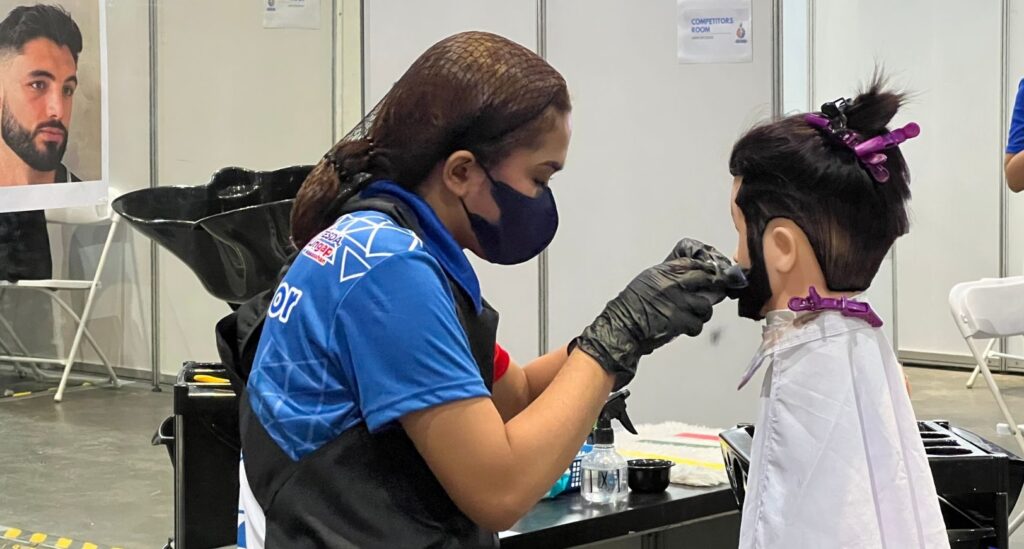
Romela S. Diaz from the National Capital Region showcases her hairdressing skills at the Philippine National Skills Competition 2024. Photo from TESDA-NCR.
Senator Sherwin Gatchalian, co-chairperson of the Second Congressional Commission on Education (EDCOM 2), revealed that only 20 out of some 2,000 students completed their Technical Vocational Education and Training (TVET) programs in the National Capital Region.
This statistic, which covers 2019 to 2021, came from a report by the Commission on Audit and was discussed during a recent Senate budget hearing.
Gatchalian expressed concern over the low completion rates. “Sayang naman, kasi we gave them the scholarship, we spent a lot of time teaching them, but they did not finish the course [It’s such a waste because we gave them the scholarship, spent a lot of time teaching them, but they didn’t finish the course],” Gatchalian said.
He emphasized the need for the Technical Education and Skills Development Authority (TESDA) to improve its programs to better support students.
TESDA’s budget for the upcoming year is set at P18.7 billion, with P10.6 billion allocated specifically for scholarship programs.
However, TESDA Deputy Director General Rosanna Urdaneta attributed the high dropout rates to disruptions caused by the COVID-19 pandemic. Many students lost interest in completing their courses during this time.
Despite these challenges, TESDA Director General Kiko Benitez pointed out that some students may leave programs after receiving initial certifications to pursue employment.
“We need to understand the full picture,” he said. “It’s possible that students enter the program with the full intention to finish, but after the first year… they may choose to go straight to employment.”
To address these issues, Benitez announced plans for TESDA to focus on ensuring that tech-voc institutions offer high-quality programs aligned with local industry needs.
He said that all registered training providers must re-register their programs every five years.
Urdaneta noted that many providers failed to meet this requirement in 2022 due to a lack of integration of 21st-century skills into their curricula.
EDCOM 2 Commissioner Joel Villanueva echoed the call for reform, urging TESDA to reassess its diploma courses.
He stressed that the goal is to equip students with skills that lead directly to employment while encouraging them to complete their training.


